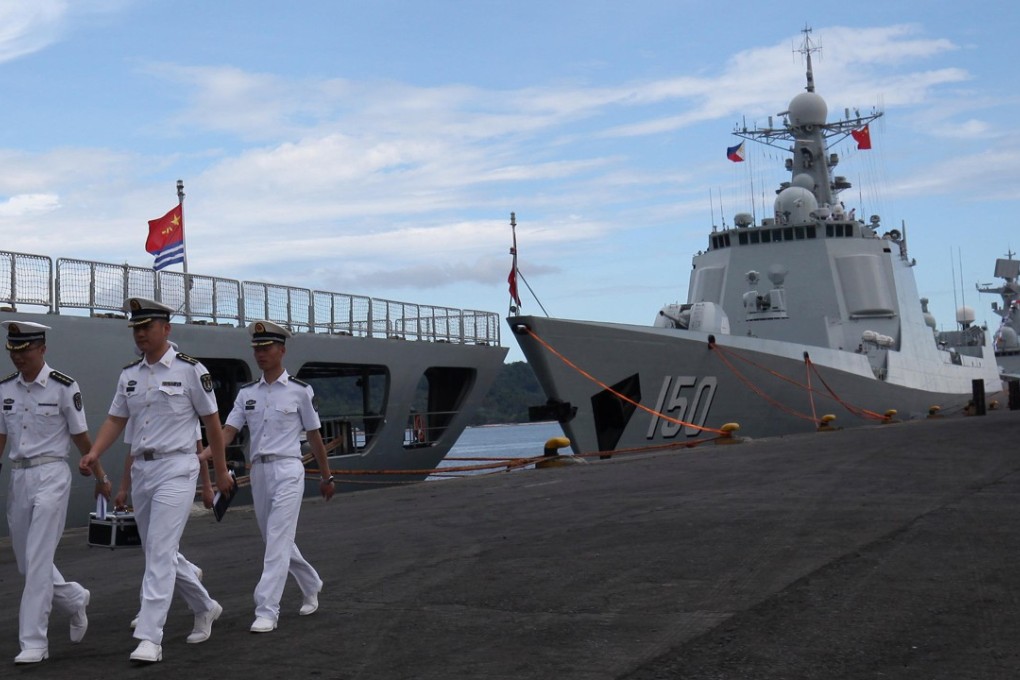The subtle message behind China’s longest round-the-world naval tour

China is carefully forging closer links with other navies, but also sending a subtle message of its capability to protect its overseas interests, analysts said, as a flotilla of PLA ships visits more than 20 countries linked to the “Belt and Road” international trade initiative.
The ships, composed of the guided missile destroyer Changchun, the missile frigate Jingzhou and supply ship Chaohu, hosted the Philippines President Rodrigo Duterte when it docked at Davao City for three days earlier this week.
The main aim of the flotilla is to build relationships with other navies in the countries in Asia, Africa, Europe and Australia the vessels will visit in the coming months, according to the Beijing-based naval expert Li Jie.
All the ports the vessels will visit are in nations that are interested in joining China’s ‘Belt and Road” initiative, including Pakistan, Malaysia, Indonesia and the Philippines.
“History tell us that only when overseas economic projects and commercial activities are backed by a powerful naval fleet can they be sustainable” said Li.